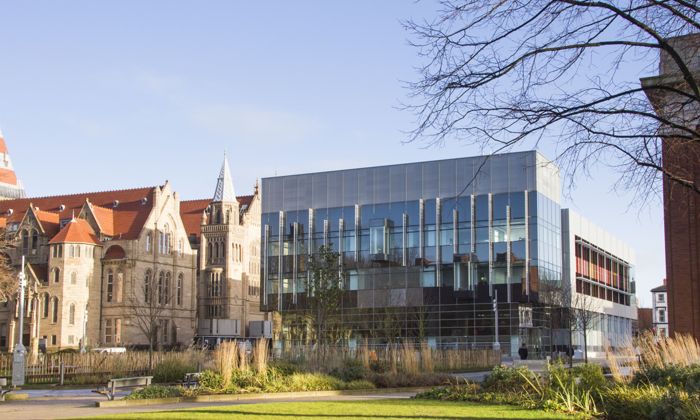University pledges to help Manchester go zero carbon and plastic free
26 Mar 2019
We’re already taking action on energy use and aim to eliminate avoidable single-use plastics by 2022

The city of Manchester has ambitious plans to become zero carbon by 2038, and the University is making major efforts to contribute to this, participating in regional initiatives to reduce carbon emissions and plastic use.
Plastic reductions
Alongside our Students’ Union, we’ll work to eliminate avoidable single-use plastics from catering, labs and stationery by 2022. The University has already taken a number of plastic free actions, including the widespread and incentivised use of reusable cups, which in 2018 which saved 338kg of waste. University hotel and conferencing facilities have also made changes which, each year, will save an estimated:
- 10,000 plastic pens
- 10,000 plastic straws
- 15,000 plastic bottles
- 48,000 shampoo and soap bottles
In addition, the Students’ Union has opened a student-run zero-waste shop which sells dried goods, bread, honey and cleaning products. Instead of plastic packaging, customers bring their own containers or bags to fill up products and pay by weight or item.
These initiatives run alongside research led by the University which includes a multi-million pound project to improve plastic recycling and look for sustainable alternatives.
Carbon targets
The University is already taking action on energy use, travel and the efficiency of our buildings, and encouraging sustainable practices among suppliers, staff and students.
The zero carbon and plastic free initiative also supports 10,000 Actions, our promise to make a difference, individually and collectively, in tackling one of the world’s greatest challenges.
Professor James Thompson, Vice-President for Social Responsibility, said: “The University itself is estimated to be responsible for 5.9% of the city’s carbon emissions and through our network of suppliers, 12,000 staff and 40,000 students, we can play an important role in driving change and influencing behaviour on climate change and resource use.
“We know that these are challenging targets, but along with our partners we are determined to fully contribute to a vitally important local project which has global repercussions.”
